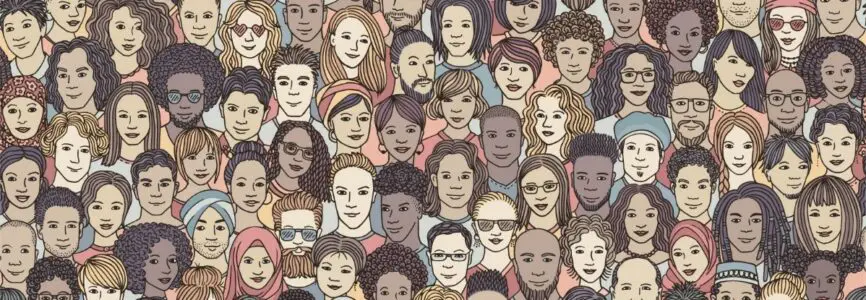Precision Medicine Research, “All of Us”, and Inclusion
The Hastings Center, in partnership with the Center for ELSI Resources & Analysis (CERA), presented “Precision Medicine Research, ‘All of Us’, and Inclusion,” an online discussion for journalists, on November 16.
Watch the discussion and scroll down for related resources.
The U.S. government is investing heavily to make precision medicine a reality—targeting preventive care and medical treatment to individual patients based on their genetic and other data. A major component of this effort of the National Institutes of Health’s “All of Us” Research Program, an unprecedented initiative to collect health-related data from at least one million people living in the U.S. to build a database of information from people of many backgrounds, ages, geographic regions, gender identities, sexual orientations, and health statuses. This session will address the ethical, legal, and social issues of the massive data collection that is essential to precision medicine research. What kinds of diversity are needed in precision medicine data sets? How can precision medicine research help overcome health inequities, such as systemic bias, lack of affordability, and obstacles to access? What are the clinical challenges to recruiting and retaining diverse participants? Why conduct precision medicine research when so many people lack access to even basic medical care?
Moderator: Nidhi Subbaraman, senior reporter, Nature
Panelist: Sandra Soo-Jin Lee, chief of the Division of Ethics in the Department of Medical Humanities and Ethics at Columbia University, a co-principal investigator of the Center for ELSI Resources & Analysis (CERA), and a Hastings Center fellow
Panelist: Carolyn Neuhaus, research scholar at The Hastings Center and a principal investigator on two projects concerning the All of Us Research Program
Panelist: Katherine Blizinsky, policy director for the National Institutes of Health’s “All of Us” Research Program
Resources:
All of Us Releases Its First Genomic Dataset (March 2022)
National Institutes of Health Bioethics Interest Group talk, “Information sharing in the All of Us Research Program: Ethical, Legal, Social, and Policy Implications” with Katherine Blizinsky, PhD (NIH) and Subhashini Chandrasekharan, PhD (NIH) (enter access code C5gH@rH$)
————————————
This is the third in a series of four online discussions for journalists taking place in the fall of 2021. The 2021 series, Genomics in Society: New Developments, New Questions, aims to inform journalists about the ethical, legal, and social (ELSI) implications of new research in genomics; discuss story ideas on genomics and its ELSI issues; and connect journalists and ELSI experts and resources.
Genomics, Human Behavior, and Social Outcomes – October 12, 2021
Law Enforcement and Genetic Data – October 26, 2021
Precision Medicine Research, “All of Us”, and Inclusion – November 16, 2021
Addressing Racism in Medical Research and Publishing – November 30, 2021
The Hastings Center in 2021 launched an annual “Bioethics for Journalists” discussion series. It is supported by the Callahan Public Programs, established by The Andrew and Julie Klingenstein Family Foundation and the John and Patricia Klingenstein Fund in honor of Hastings co-founder Daniel Callahan. Each year, Hastings will join forces with a prominent partner to bring the most cutting-edge ethical issues in science and health to journalists.

